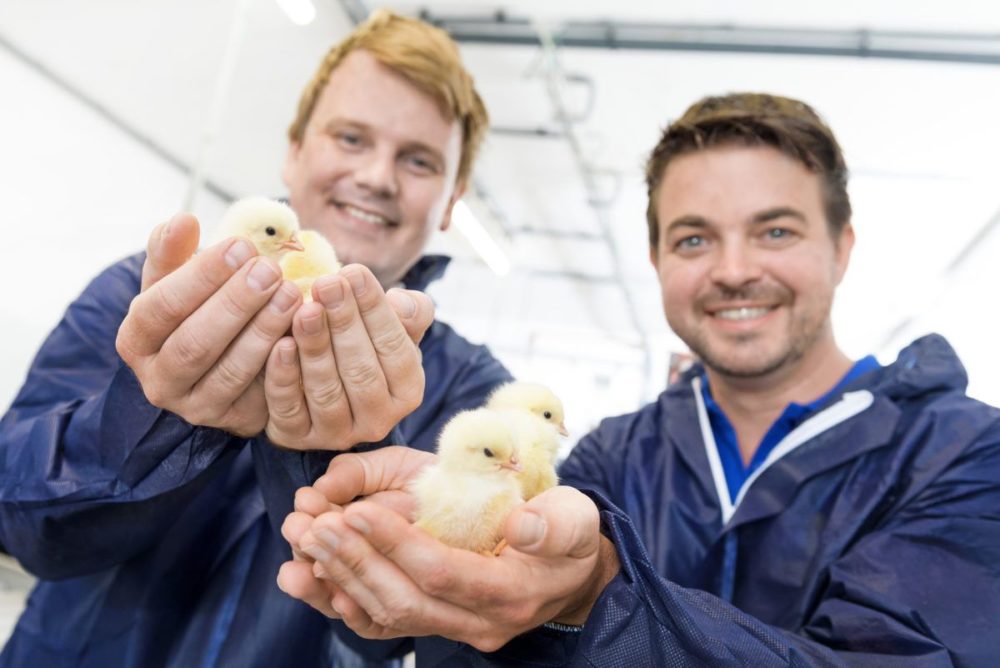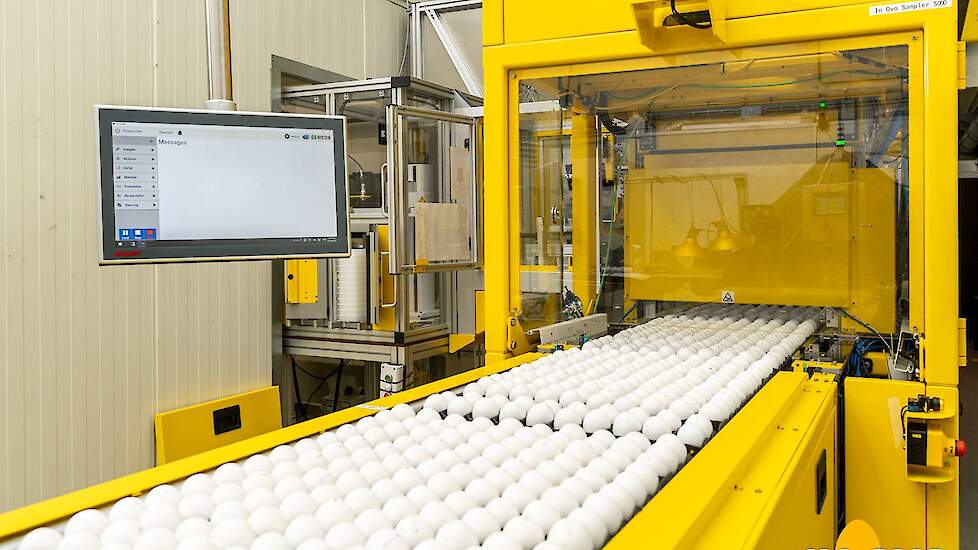- Netherlands-based In Ovo has secured a €40 million ($42 million) loan from the European Investment Bank (EIB).
- The new funding will enable In Ovo to expand its technology that determines the sex of hatching eggs and makes culling day-old male chicks unnecessary.
- The loan will also go towards further developing Eve, In Ovo’s sensor platform that optimizes the hatching process and helps hatcheries produce healthier chicks.

‘No economic use for males’ in the egg industry
The poultry industry culls an estimated 6.5 billion male chicks each year, according to In Ovo. These male chicks are typically seen as an unwanted byproduct of industrialized egg laying because they can’t grow up to become egg layers themselves and they generally come from breeds not fit for raising as meat.
“There’s no economic use for males that are born in the egg industry,” explains Robert Yaman, founder of US-based nonprofit Innovate Animal Ag, which helps advance technologies around animal welfare issues.
“What happens now is that [hatcheries] have to pay a human to manually identify each and every egg that goes to the system, and then they identify and kill all the males on the first day,” he tells AgFunderNews.
To address this, In Ovo has developed a technology platform called Ella that can determine the sex of hatching eggs at an early stage. Using an automated sampling method, the machine extracts tiny amounts of allantoic fluid from an egg, which it can then analyze to detect gender biomarkers.
Male eggs can then be discarded before a fetus develops, leaving hatcheries with only female eggs to incubate and hatch. Discarded eggs become byproducts turned into things like protein powders or ingredients for animal feed.

‘A significant leap forward’ for animal welfare
Notably, In Ovo founder Wouter Bruins says the company’s machines “have proven to be able to successfully do in ovo sexing on big volumes,” which suggests worldwide ambitions for In Ovo. The company currently has machines in the Netherlands and Belgium.
Bruins says the new funding from EIB will help the company “further develop our Ella technology and support our goal of installing machines worldwide. The funds will also be used working on further innovations to improve animal welfare in the poultry sector.”
In Ovo’s expansion comes at an apt time for the egg industry. In Europe, Germany, France, and Luxembourg have banned the culling of male chicks nationwide, and Italy will enact a ban by 2026. There is currently no EU-wide ban on the practice, though animal welfare groups are pushing for this. Consensus is that technology will be an important part of this transition.
The InvestEU program, which provides the EU with long-term funding to support projects in Europe, backs EIB’s funding for In Ovo.
“Given the funding constraints that we’re seeing in the high interest rate environment, the fact that investors and banks are putting so much resourcing behind this technology suggests that there’s a real sense among the investing community that there’s a lot of promise here,” claims Yaman.
EIB vice president Kris Peeters added that “In Ovo’s technology represents a significant leap forward in terms of animal welfare and sustainability within the poultry sector, aligning seamlessly with the overarching priorities of EIB.”
Yaman calls the investment from EIB “a clear indicator that In Ovo’s technology is ready to scale up and meet the demand we’ve seen around the world.
“It’s only a matter of time until male chick culling is a thing of the past.”
Further reading:




